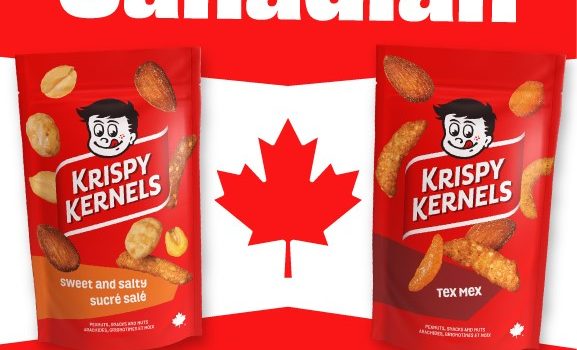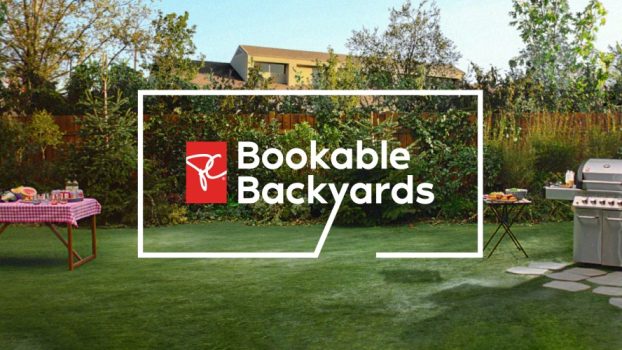Part instinct, part ambition, part facts and figures… Making the move into la belle province is often a bold experiment. Marketers have been successful in Quebec for all kinds of reasons, but there are no hard and fast rules for determining the right strategy for your brand. And as always, the first step is the hardest; justifying the expense to your client (or your boss) when you can’t prove that you’ll see a return on that investment. What to do?
‘The principles are no different than any other investment you would make,’ says Mike Welling, VP brand development for foods at Unilever Canada in Toronto. ‘The idea for most national manufacturers is to try and retain a common brand nationally but there are some differences in the Quebec marketplace. You ask yourself what’s the added value you would get out of producing separate creative and you decide, based upon your own consumer learning and understanding, whether or not that communication is working effectively. If it’s not, then it really comes back to what your business ambitions are in terms of growth of profitability.’
With 24% of Canada’s population, and higher consumer spending per capita, there’s little doubt that Quebec represents an important market. Nonetheless, determining just how much money to devote to a Quebec advertising budget can’t be based on facts and figures alone.
‘You say to yourself, ‘I have an ambition to achieve something; what’s likely to be the most successful way of delivering on that? and what’s the cost of that going to be?’ Then you decide, ‘I’m willing to take that risk or I’m not willing to take that risk,” says Welling.
Small companies can do it
For some categories, the potential for economic returns is obvious. Jim Eagles is the marketing director for Moosehead Breweries in St. John, N.B. Moosehead made their first incursion into the Quebec market last October.
‘In our case, Quebec’s beer industry is the second largest market in Canada,’ Eagles says. ‘There’s higher per capita consumption, and [the population is of] enough size that it’s viable to support in a unique way.’
Moosehead worked with Montreal agency Armada to produce out-of-home advertising for the product launch. Eagles is presently working on another billboard campaign that will roll out in early June. He reports that Moosehead achieves ‘no economic synergies’ with its Quebec advertising, and relies instead on an entirely different infrastructure to produce the work, research the consumer and test the creative, in effect doubling the company’s marketing budget.
‘The beer market is a large volume market and the economics are there,’ Eagles says. But he also points out that the decision to produce unique advertising is not something the company looks at as ‘economically justifiable.’ The real reason for the expenditure is that ‘you just can’t say something from the point of view of an Anglo-Canadian consumer to a Quebec consumer and say anything that’s relevant.’
‘The Quebec beer consumer, in the research that we’ve done, is very different from a typical Anglo-Canadian beer drinker. They view food and alcoholic beverages in a particularly unique way. The simplest way of describing it is that Anglophones eat and drink beer to get from point A to point B. Quebecers do it to enjoy life.’
In other words, saving money on advertising would, if anything, mean turning off consumers or worse – not reaching them at all.
National brands too
Brands that have grown up across Canada – like Zellers, a company founded in Ontario but headquartered in Montreal as recently as five years ago – naturally have a responsibility to take Quebec communications strategies into consideration, at all levels of their business.
That doesn’t necessarily mean running two entirely independent advertising infrastructures. Toronto agency Leo Burnett produces all Zellers creative, with the assistance of producers from Burnett’s Montreal office where necessary. TV shoots are often done twice, with different actors, or edited with different music.
While adaptations cost money, it’s much less than the cost of separate advertising.
According to David Strickland, Zellers’ Toronto-based SVP marketing, ‘It’s not just the expense you have to consider, but the resources it takes beyond the expense.’ With shrinking human resources budgets and smaller marketing teams, those resources sometimes just aren’t there. To Strickland, however, those facts contribute to Zellers’ overall communication goals.
‘We’re a Canadian organization that isn’t a global brand, but I would suggest that most global brands would prefer to have a global strategy that’s consistent, unless there’s some justification to prove that it’s worthwhile,’ Strickland says. ‘That’s our philosophy when looking towards Quebec. The challenge is to try to figure out what’s the same rather than what’s different. Tell me what’s the same and then I can leverage that and send a message that delivers against all the criteria in a way that’s effective and efficient.
‘We have not gone into delivering a completely unique campaign in Quebec because as a store, our proposition is the same and the news we have is the same. We don’t want our brand to be perceived to be different. We want it received equally positively in both places.’
So, while Quebecers won’t be watching unique Zellers ads all the time, they will see unique weekly flyers, produced in Quebec, and they will see special promotions – on Quebec’s famed moving day in July, for example.
‘We research everything we do in Quebec to ensure that the message is being delivered,’ Strickland says. ‘What we can change and do change is the blend of messages. Over the course of eight or 10 different spots, you might have some that you use in certain markets but not in Quebec or vice versa.’
Waterloo, Ont.-based insurer Clarica has used a similar strategy since the 1999 overhaul of Mutual Life that produced the company.
‘We try as much as possible to save on production costs and work with the English team to come up with a concept that will be as effective in Quebec as in the rest of Canada,’ says Sylvie Coulombe, Clarica’s Montreal-based marketing director for Quebec.
Advertising is produced by Toronto agency doug, but ‘at every single step of the process they check with us and make sure that it’s going to work here as well.’ Clarica then takes that strategy and produces two separate executions, with unique casting and a uniquely Quebec look and feel for their French ads. The goal is to create a structure where synergies can be achieved, minimizing the need for Quebec adaptations. With Quebec representing 24 – 34% of Clarica’s overall business, it makes sense for Quebec considerations to inform all of their communications.
Would Clarica ever consider hiring a Quebec agency to do specific Quebec creative?
‘If it would make the brand stronger, yes we would,’ Coulombe says, ‘but because there is such a good working relationship with English Canada, we don’t have to. Since day one we’ve advertised in Quebec. That’s Clarica – which sounds just as French as it does English.’
Global go-getters
New advertisers in Quebec should consider the long-term payoffs that an initial investment could make.
According to Suzanne Sauvage, president of Cossette Communication Group Montreal, McDonald’s is one global brand that ‘made the decision a long time ago to develop specific Quebec advertising, talking directly to Quebecers and responding to insights that are specific to Quebecers.’
For 25 years, McDonald’s has produced creative for Quebec alongside its creative for English-speaking Canada, with concepts originating in either of Cossette’s Toronto or Montreal offices. Sauvage uses the most recent television work, concepted in Montreal, as an example of how the company works.
‘The spots for the light menu are basically the same creative concept, but the execution is different. The casting is different. We always adapt our concepts to make them more pertinent to the Quebec market or the English market, but the concept [with the kids in the schoolbus seeing their mothers at McDonald’s] is the same. We just give it a slightly different tone and manner, and a slightly different approach.’
McDonald’s long-term investment has created a situation where a little cultural sensitivity is all that’s needed to make Anglophone advertising effective. Sauvage comfortably states that McDonald’s proves that ‘global brands can become Quebec brands.’
That may not be the same with companies that have less history in the province, but Sauvage cites Wal-Mart as an example of a company that has effectively moved into the Quebec marketplace using a similar model. Television ads mimic Wal-Mart’s national strategy, showing real people enjoying Wal-Mart as part of their lives. Adapted for Quebec, that strategy produces advertising that is ‘instantly relevant to Quebecers.’
More recently, Toronto-based AOL Canada made their move into the market. The company invested in a unique branding campaign in the fall of 2001 using local comedian Pascal Monpetit to introduce AOL to new French users. Just a few months into the campaign, AOL had generated an unaided recall that was in line with the rest of Canada. Aided brand awareness jumped to 100%.
With a branding base firmly established by the end of 2002, AOL moved onto phase II: local adaptations of their English testimonials campaign.
Kate Pearce, VP of marketing for AOL, says the company took the advice of the Quebec arm of their agency (Leo Burnett). ‘They characterized it as, ‘you need to establish yourself as a citizen of Quebec.”
‘As we look at it, once you’ve established that, then you can afford to pull back a little in terms of investment. [The testimonials campaign] is just a less expensive way for us of maintaining and building awareness and momentum. Yet we’re still quite pleased about the business results. Now we can run direct mail and retail campaigns augmented by the presence of the advertising on air.’
Perhaps with the exception of beer, a decision to advertise differently in Quebec can never be based wholly in figures, says Unilever’s Welling.
‘It comes down to the brand and it comes down to the proposition.
‘The way we go about deciding whether or not it makes sense, and the way I believe any good marketing person should do this, is you need to make sure you have a strong understanding of the Quebec marketplace. Therefore, anybody should ask their agency, ‘how do I know that I’m getting great insight into the Quebec marketplace?’
‘The professionalism of the folks in the Quebec advertising community needs to be trusted. They recognize that everybody is looking to stretch dollars any way they can. They are more than willing to use national creative if they can. We look to reward them based on how successful we are in the marketplace so if they say ‘hey it’s not working,’ then we go into the mode that we need to do something specific in Quebec.’ The same way you might do in any part of the country. Quebec is notable, but we have lots of distinctive regions in Canada.’























